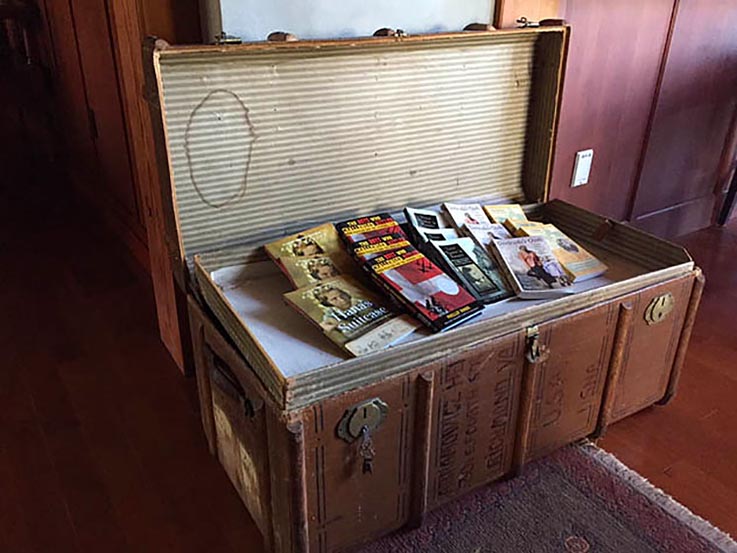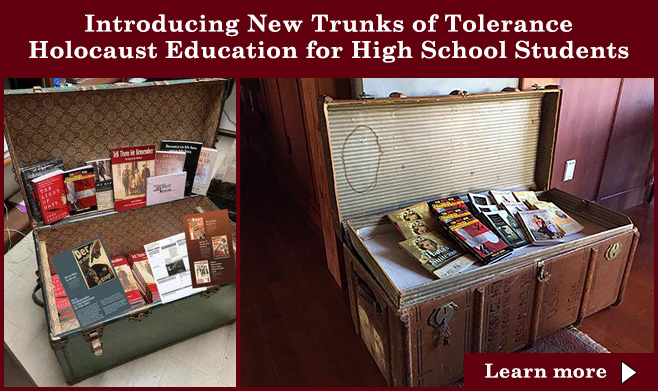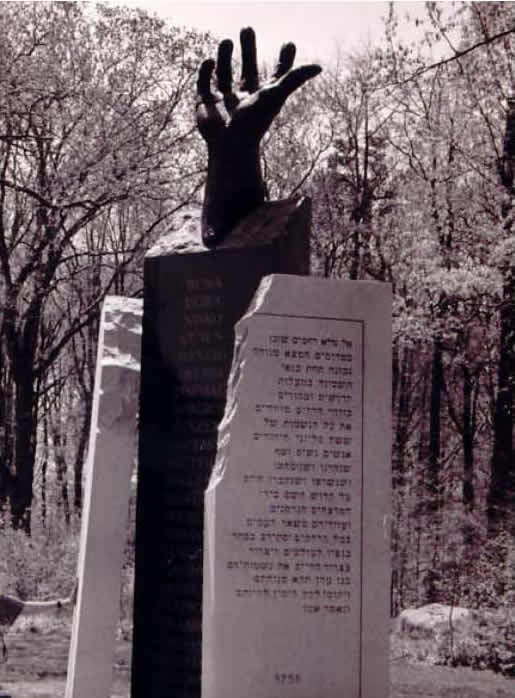International Holocaust Memorial Day Speech by Federation President Manya Bark
January 2024
Today we are gathered as a community to remember and pay respect to those that perished in the Shoah in commemoration of International Holocaust Memorial Day. However, this particular International Holocaust Memorial Day feels so much different from not only last years and those of previous years. Today I personally cannot shake the feeling that I am sitting Shiva not only for those whose lives were extinguished in the Holocaust but those that perished in the pogrom of October 7th, 2023. The events as they have unfolded have shown how inextricably the two are connected.
The attack on October 7th 2023, as many of you may already know, was the day when the largest number of Jews were murdered on mass since the end of the Holocaust in 1945. It has shaken our sense of security to the core and the words "Never Again" seem particularly hollow. October 7th was worse than a terror attack. It was a pogrom. As a historian the events of October 7th echo those experienced by Jews in Ukraine and Poland immediately after the First World War, where over a million Jews were massacred, raped and their bodies mutilated sadistically. Those events as we know now heralded the Holocaust and laid the groundwork and collective apathy to violence against Jews.
We have held these events and educated in the hopes of "Never Again" as well as to pay our respects to those that perished. It feels that our world today, especially the young have forgotten the meaning of those words. In light of our new perspective of the world around us we must renew our efforts that "Never Again" is not a mere slogan but a reality — we owe it to those that perished and have no voice.
Remembrance takes on a new meaning this year. Often times the Holocaust is relegated to the confines of history. We study the Holocaust in the past tense as if it were an artifact from the past and removed from our own lived experience of being relatively free to publicly express our Jewishness. We look back at Nazi Germany through a lens, trying to imagine a society of evil, filled with hate, of conspiracy theories, a time and a place when people were not like us "entirely". But now all that has changed....
Today as a community we mark 79 years since 6 million Jews were murdered in cold blood. Each year we remember the massacres of Jewish, Roma, LBTQ plus and disabled communities — just a mere three generations away from another genocidal entity vowing and attempting to carry out our destruction again. The Holocaust is often treated as a moment in time or history. But it wasn't a mere moment. The Holocaust was born out of centuries of hatred and propaganda culminating in a conspiracy so potent that half a continent of people were convinced that the genocide was not only acceptable but valiant and righteous.
The fires of antisemitism that lit the bonfire of the Holocaust were not extinguished when the Soviet Red Army marched into Auschwitz and liberated it on January 27th, 1945. Those fires have been left smoldering and occasionally they flare up to be dampened down again. Right now, those smoldering fires have again been re-ignited and we cannot pretend otherwise. As we scan the horizon and look to our "sacred" institutions for direction and reason there is none, rather those institutions have become implicit and explicit and part of the rotting root of antisemitism itself in our time. Bearing this in mind there is little sight of those fires being dampened down, rather they have ignited a wildfire and will not be extinguished in the short term. Reports of antisemitism just in this country alone have increased by 337% since October 7th.
The Holocaust did not happen in ancient history but in contemporary Europe. It was not perpetrated by faceless and nameless individuals. It was perpetrated by parents, by siblings, and by children — by humans just like the rest of us. It was a tragedy marked by dehumanization. Today as many survivors are no longer with us to remind us of our history - of the world's history, we are left we both a burden and a privilege — Remembrance.
The day is soon approaching when those that witnessed and were victims and who took part in the Holocaust can no longer share their stories and with it the warnings. The next generation will not have the privilege of hearing those witnesses speak in person. We must be that bridge between the generations. It is a challenging part of our history. It is hard to face the horrors, but as we have so recently been reminded that if we don't face the horrors of the past and learn from them, we are collectively doomed to experience yet more horror. It hurts to remember, but our history is also one of survival and of thriving, in spite of fear and pain, and it is because of our commitment as a people to memory. We remember the teachings of our sages, we remember the persecution of our ancestors, and we remember who we are as a people and the values that our people have given this world — .
Today in commemoration of International Holocaust Remembrance Day, let us promise the survivors, and our children, and each other — we will Never Forget and we Will Fight to ensure: Never Again.
And finally
As Carl Jung wrote "You are what you do, not what you say you'll do."
Trunk of Tolerance Project
Stories of Survival, Rescuers and Resistance
Growing up near Pittsburgh, I spent many Sundays in Squirrel Hill visiting my great aunts and uncles. We enjoyed fresh rye bread, challah and danish before we picked up my grandmother‘s order at the kosher butcher. Then ate wonderful lean corned beef sandwiches, food we didn’t have access to in our small rural town of sixty Jewish families. It seemed like everyone there was Jewish and I remember feeling very safe walking around. So much Jewish culture was apparent everywhere: the Orthodox men in their big hats, the Jewish art in the store windows, the notices announcing concerts with Jewish artists and themes, and the many talks/lecture series on Jewish text, holidays and Israel. To a young person, anti-Semitism seemed totally absent from this warm, thriving community.
Fifty years later, I am not so naive, but still heartbroken for the victims, their families, the police who tried to save and protect the Squirrel Hill community, and for Jews everywhere. We are all changed.
Hope still shines in this tragedy in the way non-Jews have come together to support us and reassure us that bigotry and violence have no place in our society.
To that end, the interfaith Holocaust Education & Memorial Committee launched a Trunk of Tolerance project last winter. Already 500 students from two New Bedford middle schools have used the materials. The trunks contain non-fiction stories written from children’s viewpoints; posters; personal histories from the U.S. Holocaust Museum; lessons on zip drives; and art supplies. Its focus is on resistors, rescuers and survivors. Teachers may borrow a trunk for two weeks to integrate these materials into their existing curriculum. After the students learn about the Holocaust, they create art projects to reflect their impressions that they then pass on to the next class, generating a conversation about diversity and respect.
Mrs. Eckhardt, 8th grade ELA teacher at Normandin Middle School in NB:
My students were inspired by the Trunk of Tolerance. The idea that they would have the chance to create something that could inspire students from other schools who, in turn, could also create and inspire others was a big motivator. They don’t often get to reach out and recognize shared school experiences.â€
Demand to borrow the trunks is growing. We now have four Trunks of Tolerance available for teachers from Dartmouth, Fall River, New Bedford, Mattapoisett and Rochester to borrow. The cost of the materials for each trunk is about $500, paid for by the Jewish Federation. If you would like to support this most worthwhile and timely project, please donate to the Federation today. Any amount is appreciated.
Marsha Onufrak |
|
|

What is a Trunk of Tolerance?
It’s a free source of materials that teachers can borrow to enhance their existing Holocaust curriculum. It is another tool to teach students tolerance and encourage them to be active resistors to prejudice. |
|

Administrator Permission Form
Request to Borrow a Trunk Form
FAQs
Logistics
Student Project Ideas
Evaluation Form
Letter to Parents |



